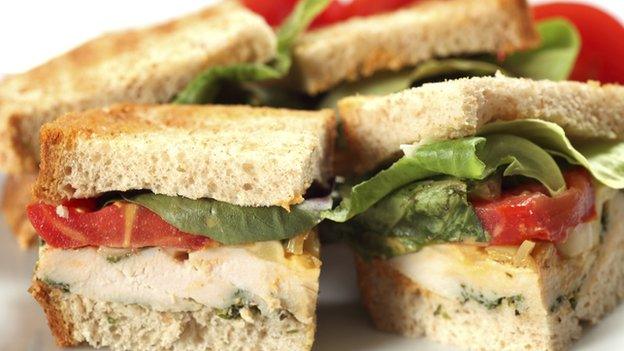Why the battle for breakfast is hotting up
- Published
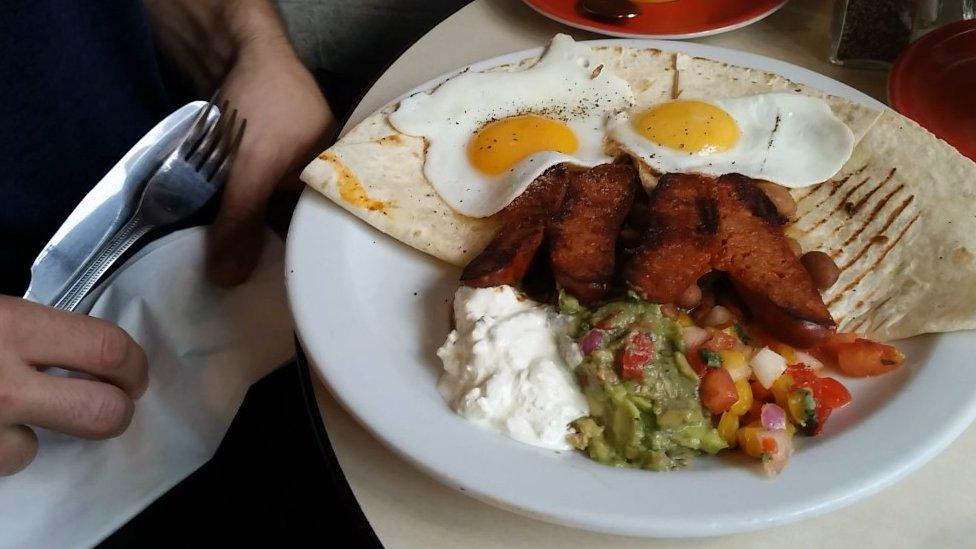
It's 8.20 on a Wednesday morning, and Chris is about to tuck into a chocolate twist pastry and an orange juice, with a coffee (Guatemalan beans) on its way. He doesn't have to be in the office until later but will use his time in this South London coffee shop to catch up on his emails in peace.
He does this about once a week, he says.
Shortly afterwards, Australian Briony pops in for her caffeine fix on her way to work. In London she says she tends to eat breakfast out only at the weekends, but when she lived in Melbourne, it would be more like three or four times a week.
She says there's more of a breakfast culture there, with places opening as early as 6am.
Well Briony may not have noticed it, but the trend is coming to the UK.
Meet some of the people who like to eat out for breakfast
Research from the market information group NPD suggests Brits are increasingly grabbing their first meal of the day out of the house.
In the eight years since 2008, it estimates that we have eaten breakfast out an extra 107 million times, while lunch has lost 80 million visits in the same period.
And, the group calculates, we shell out more too, spending an average £3.30 on breakfast - an increase of 31% compared with eight years ago. By contrast, our lunch bills have risen by just 6.5% in the same period.
More choice
"It's easier than ever before to buy a good breakfast on the High Street," says Cyril Lavenant from NPD.
There's more choice in both food and drink, and operators are open much earlier too, he adds, making it a much better option for time-pressed customers than anything they could prepare at home.
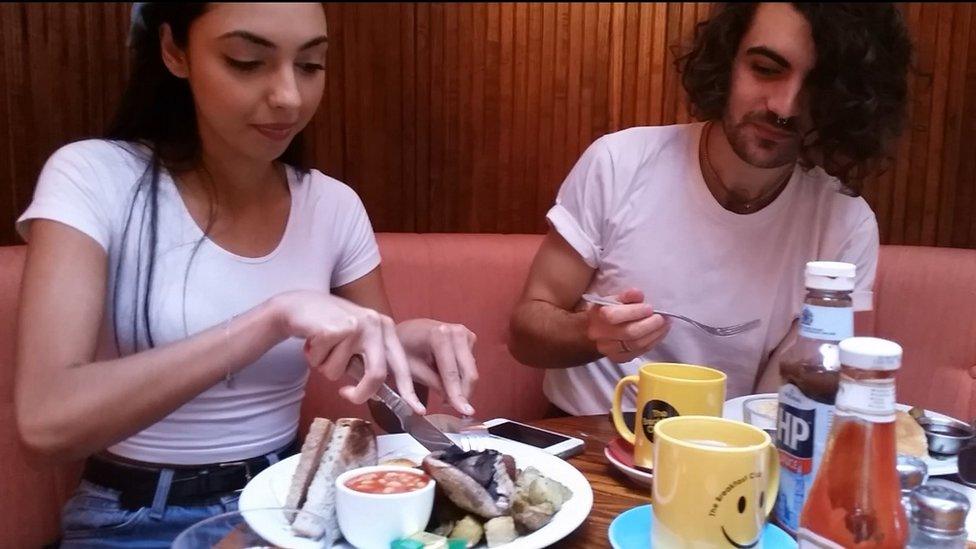
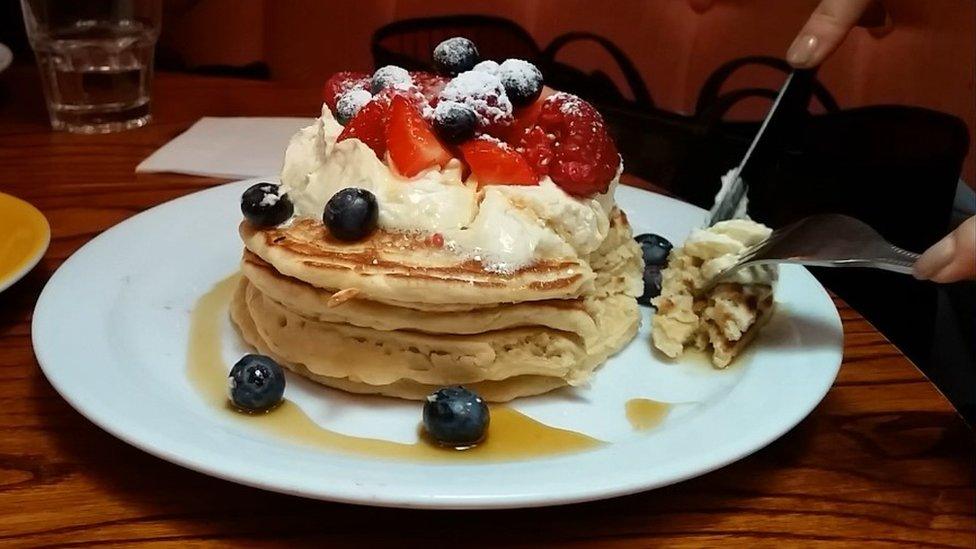
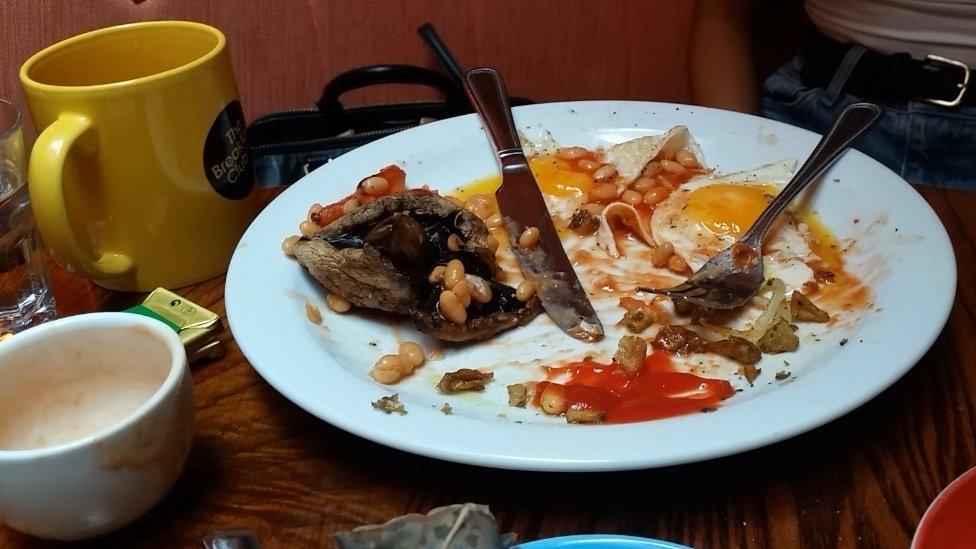
In the past it was all about a sausage and egg fry-up, or a quick croissant on the go. Now, most places will offer an assortment of exotically flavoured granola, bircher muesli or porridge with a twist.
But it's not just that we're harried and "grabbing a bite on the way to work". The first meal of the day has also become a social occasion.
The Breakfast Club is a trendy cafe that started in 2005 and now has nine restaurants across London and Brighton. At the weekend there is often a long queue to get a table.
Indulgence
Founder Jonathan Arana-Morton admits that its success was partly luck - he picked the right market at the right time. He had decided, with his sister-in-law, that they wanted to set up some sort of restaurant and since he was going to be in the kitchen initially, they needed to keep it simple.
Inspired by the great brunches they'd had in New York and Boston, they realised that that part of the day had been neglected in London.
"There's basically three elements to a good brunch - good coffee, good juice and good food," he says. "You used to have to go to three different places for each... and for the food it was usually a greasy spoon."
It's still an indulgence, he says, which is why people are willing to wait. And, he's observed, people increasingly meet for breakfast as a first date - it's much less stressful than in the evening, he suggests, with no expectations of having to go on anywhere afterwards.
Emma Read, from the foodservice consultancy Horizons, also points out that it's a cheaper way of socialising. Her company's research shows that throughout the recession the number of people eating out didn't go down, but that average spending did. She concludes that people have now got into the habit of eating out, and choosing to go out for breakfast is one way of doing that more cheaply.
But the growth in the breakfast market is not just about fashionable cafes, upmarket coffee shops and bakery chains.
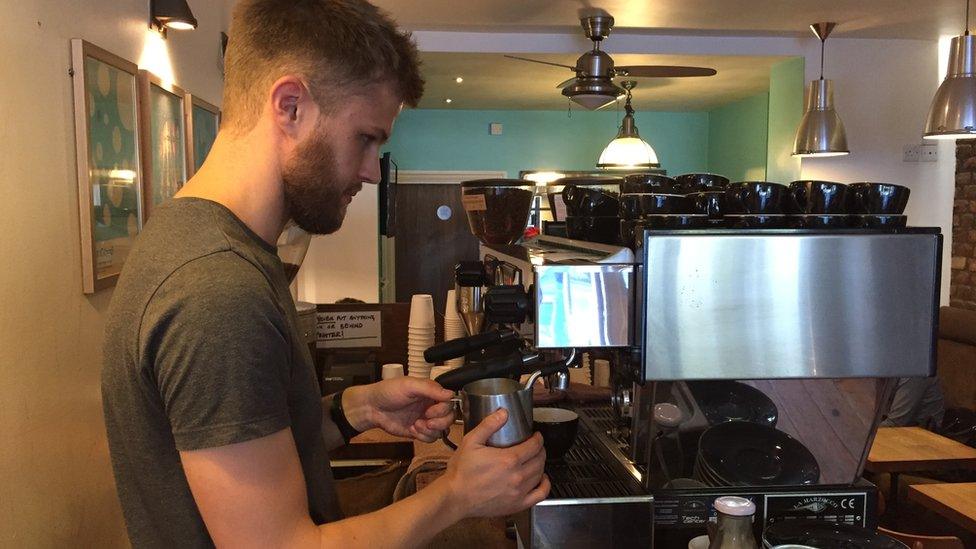
Well-made coffee is a must for any aspiring breakfast establishment
Places like Greggs, Wetherspoon pubs and McDonald's, as well as hotels, have really upped their game, says Ms Read.
"Operators have identified what the consumer wants and are offering it to them," she says, whether it's grabbing a porridge on the go or sitting down to eggs benedict.
But perhaps the biggest change in our habits is our thirst for well-made coffee. Lukewarm instant coffee is no longer acceptable - flat whites and soy lattes are a must for any aspiring breakfast establishment.
Coffee connoisseurs
NPD's Cyril Lavenant says: "Coffee is the driver of everything... if you don't serve good coffee, then consumers don't come back. A bartender has to be capable of serving as good a coffee as a pint of beer."
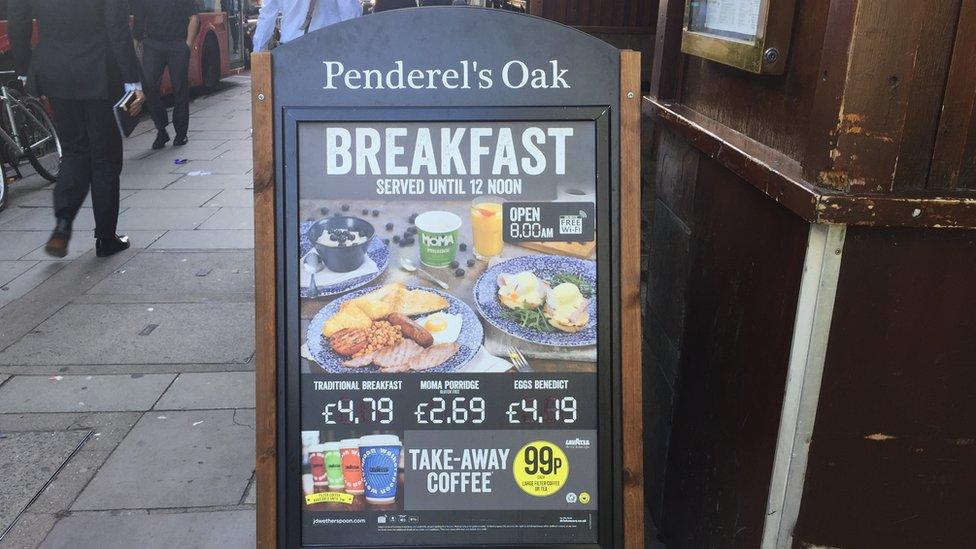
Pubs are also getting in on the breakfast act
Wetherspoon's won't give any figures on the subject but Matt Gold, manager of one of its pubs in central London, says there's been a steady increase in people coming in for breakfast.
And he certainly sounds as much a coffee connoisseur as a beer buff - explaining how important the "speed of the pour" is in avoiding a bitter taste. He even suggests that a barista's hangover can have an effect - because in that state you tend to bash the equipment about more and press the coffee in too much.
At Wetherspoon's the management conduct regular blind tastings, checking amongst other things whether a straw can stand up straight in the coffee.
But despite all the speciality coffees and smashed avocados on offer, there are some things that haven't changed. Wetherspoon's and researchers NPD both say the same thing.
The nation's favourite breakfast, the one that's ordered more than any other, is the one we're most familiar with: the good old full English of bacon, eggs, beans and toast.
- Published26 March 2015
